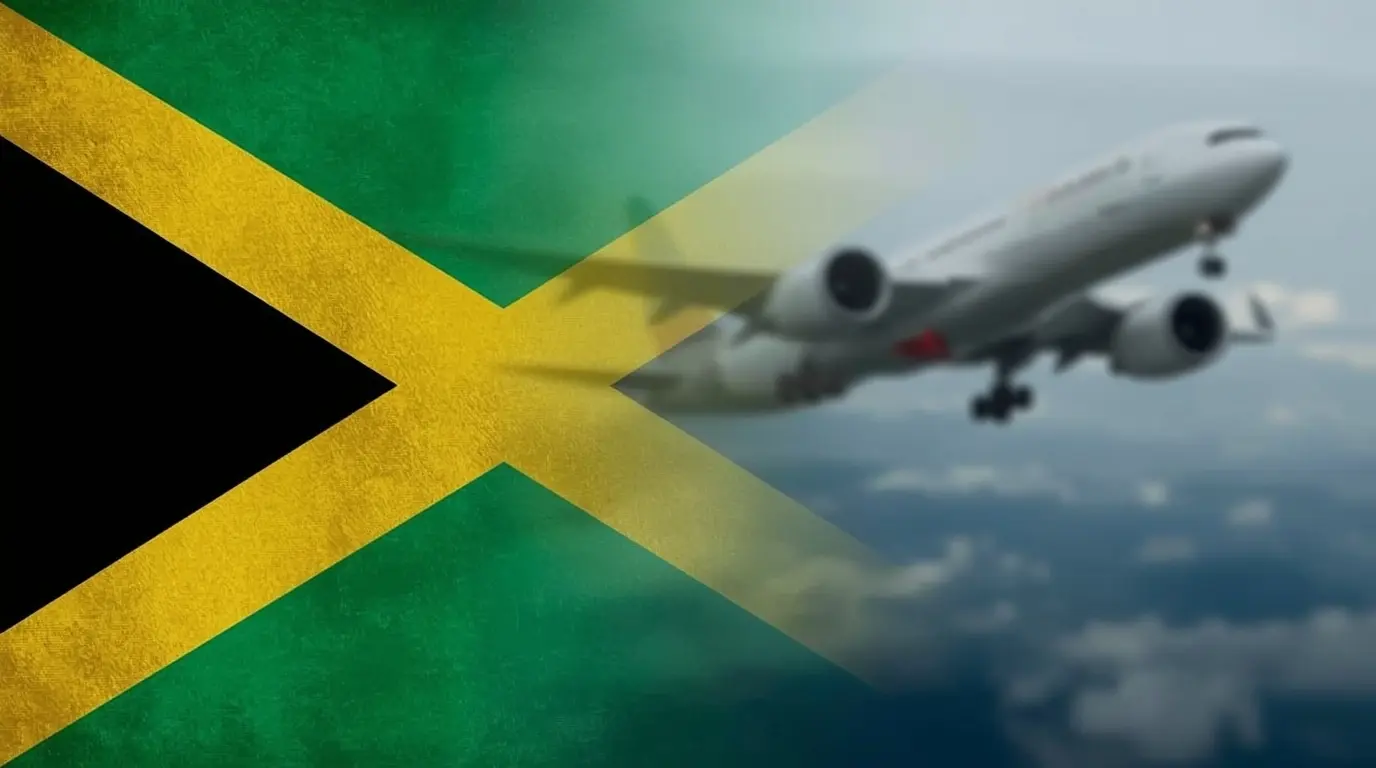Introduction
A new twist in the world of immigration has turned the spotlight on tiny Eswatini: last week, the kingdom sent home Orville Etoria, a Jamaican national who arrived there only two months ago after being transferred from a U.S. detention center. The rapid repatriation raises fresh questions about America’s controversial practice of “third-country removals,” in which migrant deportees are flown not to their home countries but to other nations willing to accept them.
Mr. Etoria’s odyssey from the U.S. to southern Africa and then back to Jamaica illustrates how everyday lives can end up caught in international politics. The case has stirred interest among human-rights groups, journalists, and diplomats, who see in it both the grit of policy and the detours of the individual. For Eswatini, the decision is noteworthy, positioning the kingdom as a less-visible player in a sprawling and often opaque system of global deportation.
This article will unpack the timeline of Mr. Etoria’s flight, assess the U.S. deportation strategy to which it is attached, and review how the Eswatini authorities weighed their options. The coordinated diplomacy that allowed Jamaica and Eswatini to cut a swift, informal deal speaks to the rare moments in migration policy when back-channel conversations can sidestep the human cost that tends to dominate public debates.
The Orville Etoria Case: A Timeline of Events
The story of Orville Isaac Etoria stretches across decades and continents. Aged 62 today, Mr. Etoria arrived in the United States as a boy in 1976. He grew up, became a lawful permanent resident, and, nearly 30 years ago, committed a violent crime linked to a Brooklyn shooting. Orville completed a 25-year prison sentence, finished his parole, and rebuilt his life, working at a men’s shelter in New York City.
His quiet routine shifted in 2025. Each year, he had checked in with immigration officials, and this visit was meant to be no different. The appointment, however, ended with his unexpected detention. A few weeks later, in mid-July, he was moved—one of five men flown not to the United States, but across oceans to the tiny kingdom of Eswatini.
Detention in Eswatini
When Etoria first arrived in Eswatini, he was taken straight to the Matsapha Correctional Complex, the country’s top-security prison. His attorneys, who work for the Legal Aid Society in New York, say he spent over two months there with no formal charges and wasn’t given regular time with a lawyer. They insist the holding was against the law, stressing he had finished his prison time in the U.S. and wasn’t facing any new charges in Eswatini.
Repatriation to Jamaica
Everything changed on September 22, 2025. Eswatini’s government said Etoria was sent back to Jamaica after choosing to return home. Jamaica’s Foreign Minister, Kamina Johnson Smith, later confirmed the flight, adding that his reps from the Ministry of National Security were on the tarmac to greet him. In her statement, the minister said the nation was “pleased to welcome Etoria home,” reaffirming Jamaica’s promise to look after all its citizens, no matter where they are.
The Trump Administration’s Third-Country Deportation Program
Moving Orville Etoria to Eswatini was not a stand-alone action; it fits into the larger immigration game plan the Trump Administration tightened during its final two years. The idea is to deter illegal immigration by sending some migrants to countries they never planned to live in. If their home nation refuses to take them or if officials want to scare others into staying away, a third nation becomes the drop-off point. JSTOR
Rationale and Justification
To defend the transfers, the Department of Homeland Security (DHS) calls the people sent out serious criminals. When the timeline listed the five men shipped to Eswatini, DHS spokesperson Tricia McLaughlin labeled them “so uniquely dangerous that their own countries won’t take them back.” She added they “have been harming American communities,” but now, under the Administration’s methods, “they are off of American soil” and “America is what the program is selling to the voters.”
Some groups dispute the U.S. reason for the removals. Jamaica’s officials clearly stated they did not block the return of Jamaicans deported from Eswatini. Likewise, Eswatini’s Foreign Affairs Minister said multiple victims had been misrepresented, explaining, “Some of the home countries told us it is untrue that they have rejected citizens.” His comment hints that the U.S. narrative may not capture what the migrants’ countries of origin really believe.
Other African countries are now part of similar U.S. plans. Media sources have said the United States is deporting individuals from Eswatini, South Sudan, Ghana, and Rwanda, and has reached an agreement with Uganda, though flights there have not yet been confirmed.
Among the latest examples, South Sudan recently confirmed that one Mexican migrant, identified only as Francisco, was pushed out after being held for eight weeks. He was sent from Kinshasa via an unexpected routing. As of the latest update, officials confirmed there are still six other undocumented individuals from African countries incarcerated. Critics now worry that Eswatini and the others are being re-positioned as transit centers for detainees the U.S. labels “undesirable.”
Eswatini’s Role and Response
Mighty Eswatini, the pretty kingdom nestled right next to South Africa, suddenly found itself in the global headlines when five deportees landed on its soil. Since then, the nation has been treading carefully—working with the U.S. while also moving to get the travelers to either home or another stop.
Official Comments
Thabile Mdluli, the acting government spokesperson, made it clear: the deportee named Etoria left on a repatriation flight organized together with help from the United Nations’ International Organization for Migration. Mdluli has called the five a “transit group,” meaning they passed through Eswatini to move to another destination, not to stay.
For the other four—coming from Cuba, Laos, Vietnam, and Yemen—the spokesperson said the country is still in “ongoing engagements” to get them back to their respective home nations. Eswatini sees itself as a temporary pit stop, not a final stop on any flight plan.
Legal and Human Rights Challenges
The detention of five men in Eswatini continues to stir debate. Two lawsuits have been filed in the country’s courts questioning the legality and the conditions under which they are held. One case insists that the men must be allowed in-person meetings with their lawyers, while the second, supported by several nonprofit groups, claims that their detention violates the Constitution. These lawsuits underscore the friction that can occur between international norms and the rights of individuals, and they put Eswatini’s courts in the difficult position of deciding a case that could affect both national sovereignty and the international human rights image.
Regional Implications and International Reactions
The situation of Orville Etoria, along with the wider U.S. deportation program, has drawn attention from the global community, especially from Southern Africa. Countries in the region are carefully observing how Eswatini manages the case, lo…
Diplomatic Relations
The successful return of Etoria to Jamaica, the Jamaican Foreign Minister, Kamina Johnson Smith, has said, “sustained engagement” between her ministry, the Eswatini government, and the Jamaican High Commission in Pretoria. She thanked Eswatini for its “cooperation and the duty of care” it showed throughout the process.
This new diplomatic cooperation indicates that, even though the deportations have sparked controversy, Eswatini and its partner countries still have useful lines of communication that keep working. Helping Etoria return to Jamaica, instead of blocking him, could be a way for Eswatini to soften criticism of its role in the U.S. deportation program.
Human Rights Concerns
Advocates for human rights and legal aid groups are sounding alarms about the U.S. practice of sending migrants to a third country. They say the policy literally forces people onto planes bound for nations where they have no home and where basic legal protections are shaky, especially in countries that score low for human rights.
Mia Unger, a Legal Aid lawyer in New York who handled Mr. Etoria’s appeal, added that while he is grateful to have left Eswatini, “the challenging job of returning to Jamaica, where he has not lived in nearly fifty years, now begins.” Unger’s remark shows that these deportation choices can shape a person’s entire life long after the planes have taken off.
The Road Ahead: Future of Third-Country Deportations
As the Eswatini authorities continue working with the final four detainees, spotlight remains fixed on the future of the U.S. third-country deportation plan and the longer-term effects on countries like Eswatini.
Legal Precedents
Cases now winding through Eswatini courts could set benchmarks for how similar detentions will be treated across the region. A ruling deeming the current practice unconstitutional, or a mandate for expanded legal access for detainees, would cloud the path for future deportation pacts—not only with Eswatini, but for other states now weighing similar deals.
Strategic Considerations for Eswatini
Eswatini’s government has to thread a needle: it needs to cultivate U.S. ties while managing steady domestic and global backlash. Leaked documents seen by The New York Times suggest that, in exchange for hosting third-country deportees, the kingdom had sought a $500 million package from Washington, underscoring a potentially pivotal fiscal motive in the equation.
Eswatini faces competing pressures when deciding whether to keep accepting deportees, and how to do that fairly. Its future stance may either guide or warn other African nations thinking about the same type of deals.
Conclusion
The decision to send Orville Etoria from Eswatini back to Jamaica settles one personal story, yet big questions on immigration rules and global partnerships stay open. His story shows how countries like Eswatini are slowly joining the international system of immigration enforcement, along with the quiet, complex deals that diplomats make.
While the United States pushes its strategy of deporting people to third nations, the Eswatini example teaches lessons about the everyday and moral costs of these deals. The smooth return of Mr. Etoria, carried out with the cooperation of Jamaica, shows that even when deportations cause tension, steady talks can lead to outcomes that honor both the rights of the person involved and the laws of the countries sending and receiving them.
All eyes remain on Eswatini as the government wraps up the cases of the last four detainees and figures out its next steps in this difficult global situation. The kingdom’s next moves will shape the larger global discussion on how to balance enforcing immigration rules and protecting human rights. Eswatini may not have been the country everyone expected to lead this talk, but its role is now proving to be key.
Source: https://edition.cnn.com/2025/09/24/africa/eswatini-jamaican-deported-intl
For more incredible stories of everyday news, return to our homepage.





